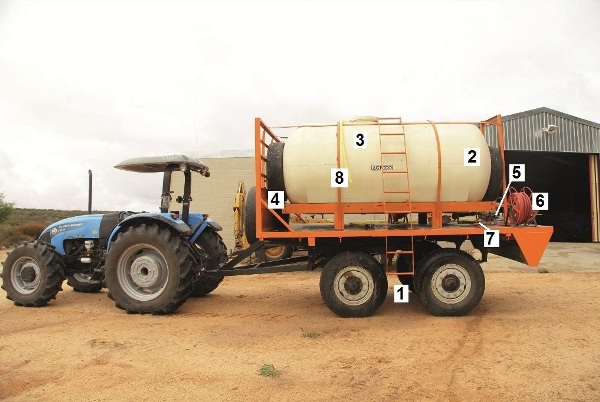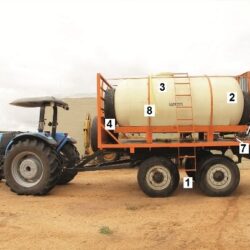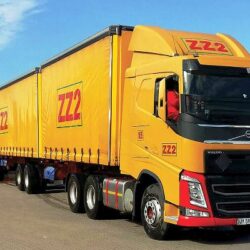Farmer and entrepreneur Mike Bosch from Bela-Bela in the Limpopo Province of South Africa is well known for his plans to improve the sustainability of his farm. And he is still hatching new plans.
Africanfarming.com recently published an article on his newest concept to enable people to produce meat, eggs and vegetables in and around a chicken coup that also boasts a solar panel and battery for charging and storing electricity. It is then used to charge a cell phone and keep a few lights burning.
When we spoke to Mike again, he told us excitedly: “I have improved the chicken project. Come and have a look!” So we went to see what it is all about and asked him to reveal his other practical plans which make life easier, especially for people in rural areas of Africa.
NEW POWER PACK
The newest development he told us about is an even better power pack which is charged by a 150 watt solar panel. While the old concept of a basic battery could store enough electricity for only a few lights to be used at night when the sun is not shining and the solar panel is not working, the new power pack can run four LED lights that use only a small amount of electricity.
It also has two USB points to charge cell phones and laptop computers.
The rest of the chicken coup of 4x2x1.5 m comes with 60 chickens, all feeding and watering equipment, vegetable seeds and ten nut trees. The run is moved twice monthly and then vegetable seeds are planted in the soil containing a lot of chicken manure to fertilise the soil.

MAKING MONEY
Mike told africanfarming.com about the success three Zimbabwean women had with his chicken project. Each of them is now earning US$250 per month by selling their excess eggs, chickens and vegetables, as well as charging neighbours money to charge their cell phones.
And they have enough food to feed their families, as they now produce five times more vegetables than before.
“If these women in one of the poorest African countries can achieve so much, why not in any country on our continent? By feeding the children eggs, meat and vegetables produced organically, they will be much healthier,” Mike says.
Mike recently did his own experiment on his farm by planting maize seeds at an equivalent of a plant population of 80 000 plants per hectare under irrigation – with only chicken manure as fertiliser. He reaped about 15 tons of maize per hectare.

CHICKENS FED ON TICKS
Mike started his chicken project years ago when he used indigenous African chickens to rid his cattle from ticks. When he saw how well the chickens survived on only ticks, seeds and grass, he crossbred these chickens to develop his own breed, the Boschveld Chicken. These chickens now form the base of his chicken project to feed Africa.
TILAPIA IN DAMS
He also used tilapia fish in his dams to get rid of algae. Old motorcar tyres in the water provide a safe breeding place for the fish. It also has some reaction in the water to contain algae. Farmers can then harvest the fish to feed their families.
COMPOST
By using any rotten vegetables and excess chicken manure to make compost, families can use it for fertiliser.
“Do not throw any leftovers away. Put it in a compost heap and make your own fertiliser to improve your production. Get the right seeds to plant in your area. Do not keep your own seeds, as it will result in poor crops,” he explains the benefit of using top quality seeds.
OWL HOUSES
Mice and rats are always a problem in both rural areas and towns. Mike built nests from wood to attract owls to feed on the rodents to keep their numbers down.




